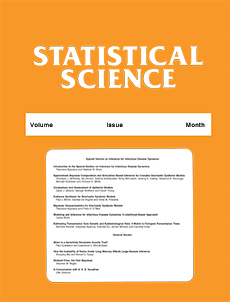Abstract
Most methods for handling incomplete data can be broadly classified as inverse probability weighting (IPW) strategies or imputation strategies. The former model the occurrence of incomplete data; the latter, the distribution of the missing variables given observed variables in each missingness pattern. Imputation strategies are typically more efficient, but they can involve extrapolation, which is difficult to diagnose and can lead to large bias. Double robust (DR) methods combine the two approaches. They are typically more efficient than IPW and more robust to model misspecification than imputation. We give a formal introduction to DR estimation of the mean of a partially observed variable, before moving to more general incomplete-data scenarios. We review strategies to improve the performance of DR estimators under model misspecification, reveal connections between DR estimators for incomplete data and “design-consistent” estimators used in sample surveys, and explain the value of double robustness when using flexible data-adaptive methods for IPW or imputation.
Citation
Shaun R. Seaman. Stijn Vansteelandt. "Introduction to Double Robust Methods for Incomplete Data." Statist. Sci. 33 (2) 184 - 197, May 2018. https://doi.org/10.1214/18-STS647
Information





